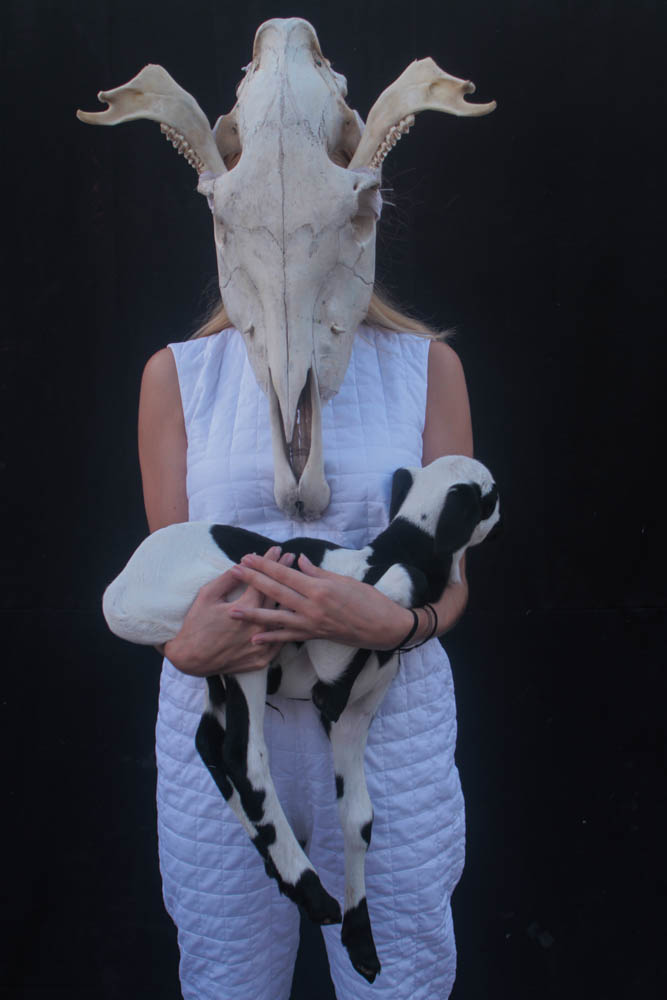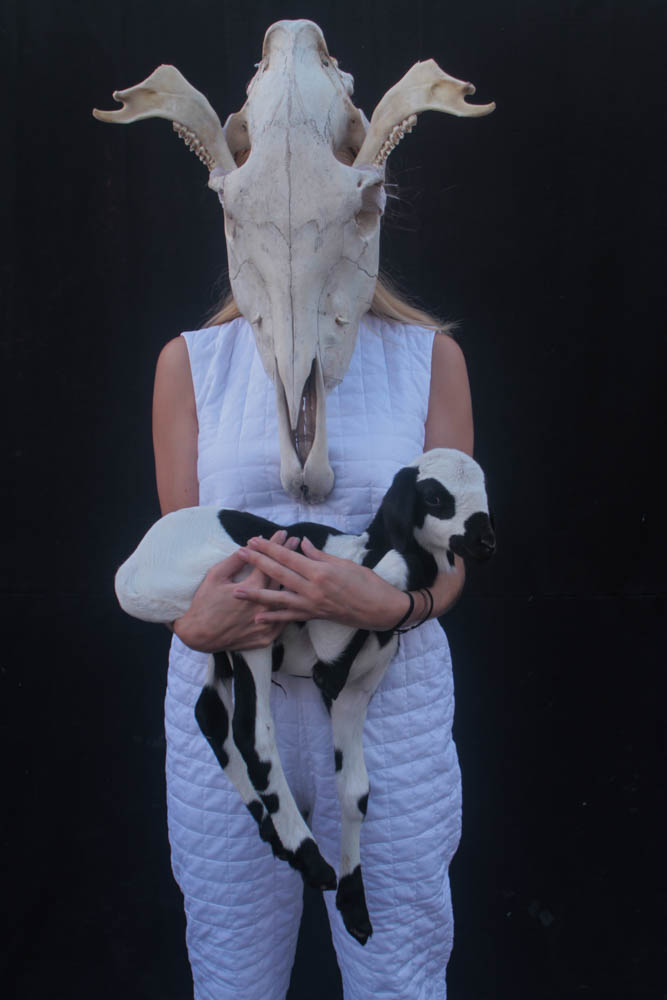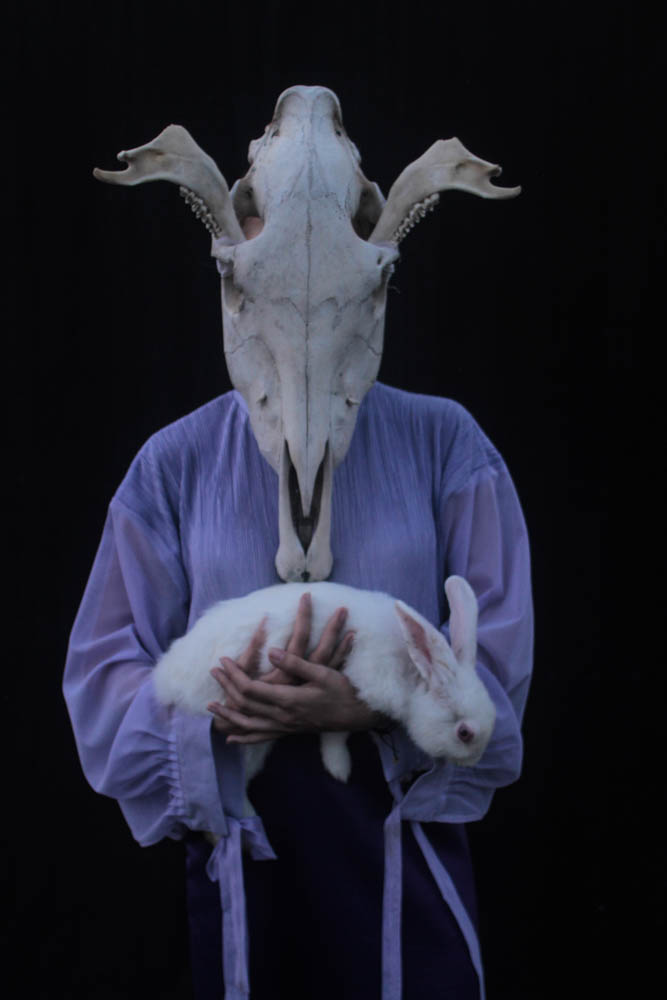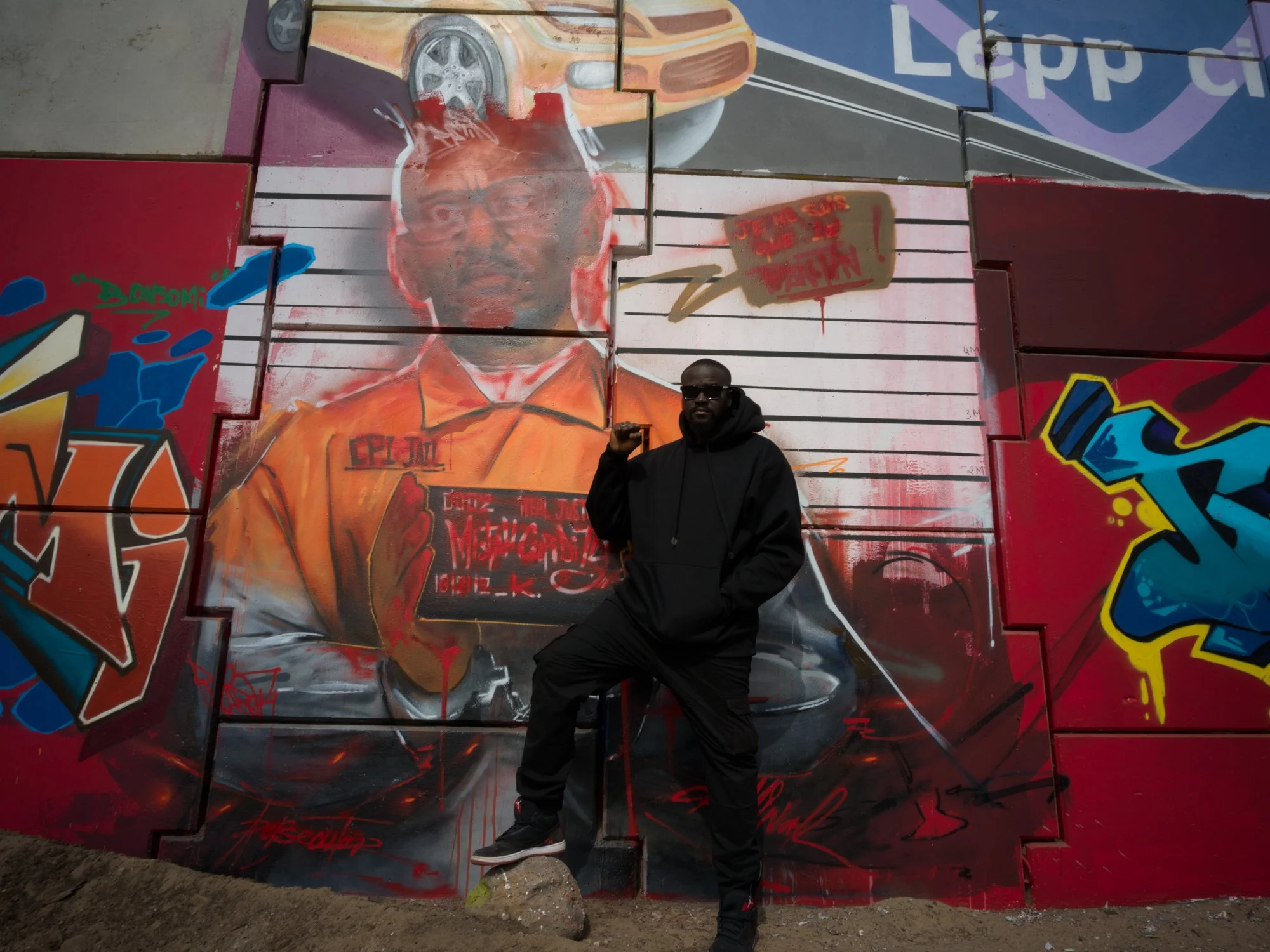In this project, entitled ‘Rémission’, Djibril Drame shines a light on mental and emotional health of mankind and its relation to the animal world. The ‘modern man’ is sick, absorbed in a self-destructive spiral and slowly becoming out of touch with his true nature.
According to Georges Chapouthier, biologist and philosopher: ‘relationships between the man and the (other) animals are shaped according to 3 conceptions of animals: humanized animals, animal-object and animal-sensitive being’.
At the spiritual level, many parallels exist between men and animals. Religious philosophies such as Buddhism and Hinduism believe in the concept of metempsychosis, or transmigration, which is the potential reincarnation of the soul after death in animal bodies. Gods and deities can be incarnated and portrayed with animal physical attributes. For example, Hayagreeva is a white horse-headed avatar of the Lord Vishnu in Hinduism, the god of wisdom and knowledge.
The 18th century in Europe is a turning point in man/animal relationship. René Descartes started observing animals through a materialist lens. According to him, animals do not have a soul. This ideology gave birth to many ideas shared by Enlightenment philosophers. Among them Emmanuel Kant, who justified the superiority of men over animals by stating that the ability of reasoning is a human characteristic. Hence the following scientific improvement of dressage and the control of animal breeds. During this period, the Western man wants to be the measure of all things. He rationalizes and organizes nature according to his own needs. The justification for animal inferiority and therefore rationalized captivity of animals, and more generally of nature, which is a direct heritage from the Cartesian philosophy, is also the rationale behind the violence and domination towards women, non-white and non-Western people, justifying discrimination and colonization of the world.
During Europe’s period of heavy urbanization in the 19th century, the role of animals in the city are defined by hygiene policies and social class conflicts. Animals qualifications range from parasites to companions. Men project themselves into animals and define themselves through their eyes. Animal presence allow them to stay in touch with the living and simulate emotional support. At the end of the 20th century, anarchist ideologies such as primitivism draw parallels between animal domestication and human domestication, questioning ideas of so-called progress and civilization.
Today men seem to be disconnected from their emotional and caring capacities, disconnected from their humanity, perhaps from their mortality. In response to this blatant and alarming loss, the work of Djibril Drame shows different ways to healing. Remedies need to be found outside of the dominant philosophy and the structural system. Women can be at the heart of the healing process. It allows us to imagine the potential and power of feminine energies, in search of the underlying cause of the pain, behind the dehumanized man.
Senegal/ July 2019
Lisa Theveniau
Writer, Fashion Designer and Sciences Po Urban Studies graduate
















